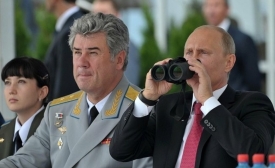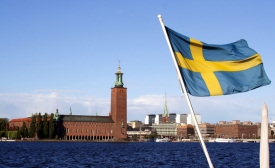vladimir putin
Current Time had its official launch in February. In a world of fierce competition from Russia, China, Iran, and others for the information space, the U.S. government is finally entering the fray in the ambitious and focused way that the current international climate demands. [...] With the motto “Real News for Real People, in Real Time,” Current Times focuses on live news. Russian audiences are used to highly orchestrated news and are attracted to more immediate, unedited content.

Has Putin's use of hard power created a soft power appeal?
The Kremlin is trying to split the West by spreading “altered facts,” conducting blackmail and setting up front organizations, the U.S. State Department said, in 1981. So-called active measures were common during the Cold War, when the U.S. and the Soviet Union sought to unify and divide Europe with equal urgency. Now those tactics appear to be back, retooled for the digital age

Russia's strategy toward Sweden blurs the line between public diplomacy and covert operations.
Over 200 years ago, President George Washington warned Americans about foreign powers undermining American democracy by tampering “with domestic factions, to practice the arts of seduction, to mislead public opinion, to influence or awe the public councils.” In the present, we are finding that old threats are new again as the United States is challenged by Russia’s strategic communication efforts targeting both our domestic politics and international interests.
“A decent respect to the opinions of mankind,” intones the U.S. Declaration of Independence, requires that those who want to break away from a nation-state explain publicly their reasons for doing so. Today, however, following a dramatic week of events connected to the ascent of Donald Trump to the Presidency, a similar imperative requires that we try to explain to the world—and most of all to ourselves—what is going on.







